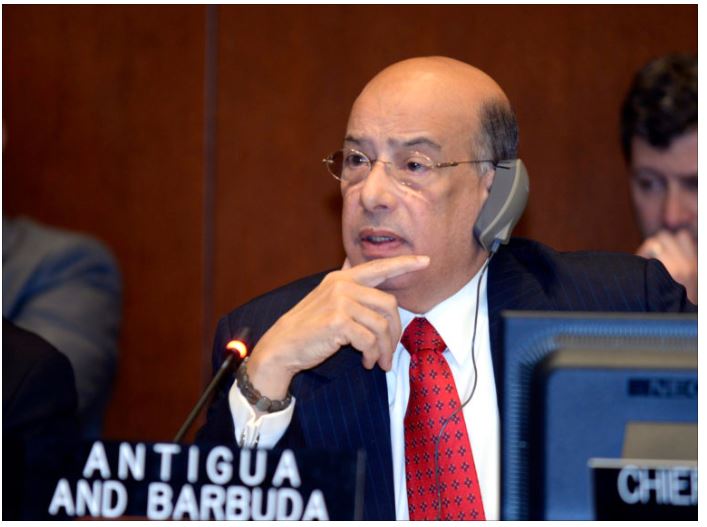By Nancy Roc
Recently, hundreds of protesters gathered in front of the U.S. Embassy in Port-au-Prince to express their anger at the continuing U.S. support for President Moise. Protesters were again demanding President Jovenel Moise resign after an audit report accused him of embezzling funds meant for social projects.
This protest was the latest in a series of the most important anti-government demonstrations’ since the fall of the Duvalier’s regime, in February 1986. Another one has been planned for August 14th, the day date when, in 1791, a Voodoo ceremony called ‘’Bwa Kayiman’’, ignited the independence war against the French colonists and led to the first successful slave revolution (1791-1803) in the world. As Professor Jeremy Popkin of the University of Kentucky reminds us, that revolution sent shock waves through the New because, for the first time, a slave revolt had defeated the white forces.
Since then, the same forces around the world, led by the U.S, have refused the emancipation of the Haitian people. All means have been used against Haitians: military occupation, embargo, economic sanctions, rigged elections or foreign intervention in the election process. Haitians have seen it all and are still seen as slaves in 2019.
As we all know, slaves were not considered citizens. Whites controlled politics and used slaves on a subordinate societal level. Whatever they acquired was their master’s: they could not plead nor be pleaded for. Right now, the Haitian people are still facing these harsh rules: their country’s destiny has been controlled by the U.S since the American occupation in 1915 and they have to accept and obey the American concept of democracy.
The Center for Economic and Policy Research has revealed that, in 2012, Michel Martelly was elected by the US government, which intervened through the OAS to change the election results of the first round of Haiti, putting Martelly in to the second round. The research center cited an e-mail from Laura Graham, the Chief Operating Officer of the Clinton Foundation in 2012, sent to Secretary of State Hillary Clinton and her top aide, Cheryl Mills. It is perhaps the clearest evidence to date that key American officials viewed the US intervention in the Haitian election as decisive.
Recently, US Deputy Mission Chief Robin Diallo was quoted in the Haitian press as saying that the U.S support the democratic elected president not the person. Responding to the recent nomination of new designated Prime minister, Fritz William Michel, she added that it could be him or anyone else. For the U.S, what’s important is the democratic process. With such foreign policy, Haitians have reasons to be fearful. Did the U.S accept the democratic process in Venezuela? No, even though Maduro is the elected president. Did the U.S intervene to stop the people of Porto Rico asking for the resignation of the Governor? No. So why is it that in Haiti the U.S has used double standards? It is indeed, with this ‘’ anyone else’’ strategy that Haiti’s economy and politics are facing the worst corruption in its history, with the embezzlement of billions by Martelly’s political party.
Jovenel Moise is the successor of Martelly. Michel is known to belong to the ruling party. Right now in Haiti, all ‘’the drug dealers, all the thugs of the Republic, all the people unacceptable in a society under the rule of law are the friends of the president, the senators, the deputies and other elected officials, when they are not those elected themselves “, says Herold Jean François, senior journalist. So, no, the U.S cannot accept ‘’anyone’’ to rule Haiti. Because that lack of boundaries has not only invited a lack of respect of Haitians toward our U.S. friend: it has transformed the Haitian state into a criminal association. Nancy Roc
(Nancy Roc is an independent and award-winning Haitian-Canadian journalist, writer and political analyst with 30 years of experience. Her work has been published around the world.)



